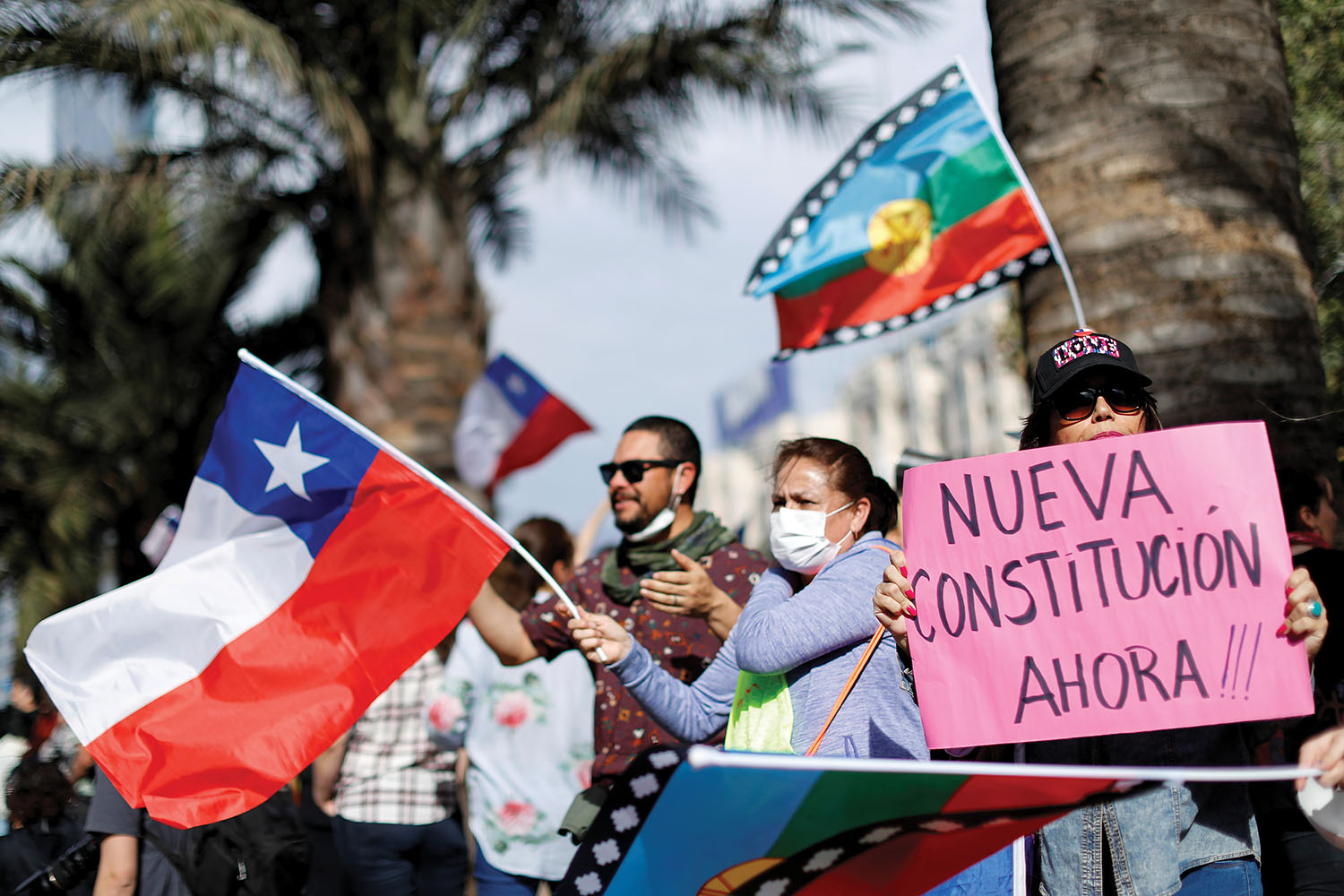In 2019, Chilean citizens took to the streets in one of the largest anti-government protests in the nation’s young democratic history. One of their key motivations was a request to rewrite the Chilean constitution. The existing document is one of a few remnants of the dictatorship of Augusto Pinochet, who was installed in 1973 by a coup that received covert support from the CIA. His violent, military-supported seizure of power usurped the democratically-elected socialist government of Salvador Allende. His constitution granted undemocratic veto power to military and far-right parties, even after the fall of his regime. For young liberals and leftists in the country, this constitution represents a dark past of authoritarianism and imperialism.
Pressured by the protestors, the then-centrist government held a referendum in 2020 to measure public support for a new constitution. The results were undeniable: 78 percent of people voted in favor of writing a new constitution. The government of Chile acted swiftly to rewrite the country’s founding document, establishing an elected 154-body Constitutional Convention with gender parity and indigenous participants. For the past two years, this convention has been working on a draft constitution, covering rights for women, the autonomy of indigenous communities, environmental regulations, and a system of universal healthcare. Many people, both within Chile and globally, waited excitedly for the new constitution, hoping it would position Chile to become one of the most progressive countries in Latin America.
Despite the overwhelming public support for redrafting the constitution, the finalized document was vehemently opposed by the majority of Chileans. Only 38 percent of voters supported the new constitution. Many Chileans explained that the document was far too radical; one complaint was that it named Chile a “plurinational” state comprising indigenous and European-descended communities. It seems that the average political stance is far more moderate than what was previously predicted.
The election of President Gabriel Boric, a socialist, in 2021, following the second presidential term of conservative Sebastian Piñera, made it seem like the majority of Chileans were ready for a progressive, reformist government. For most of the past decades, Chilean presidents have been members of the center-right or center-left parties which largely maintain the free market status quo. Left-leaning political sentiment, catalyzed by the wave of student protests in 2019 against economic disparities, probably pushed a lot of people, at least momentarily, further left.
Now, with Chilean unrest largely quelled and the introduction of compulsory voting this year, Chileans’ political orientation seems to have reverted to the mean. Specifically, many more right-leaning voters are participating democratically. In 2020, left-leaning voters dominated the polls, reporting a 17-point higher participation rate than right-leaning voters. The relatively dormant center and right-leaning populations, now forced to participate democratically, tilted the scales against the new constitution. Eighty-one percent of Chileans who identify as leftist polled in favor of the constitution, whereas only 35 percent of centrists, and 10 percent of right-leaning Chileans, approved the constitution. In addition, many voters who were largely uneducated about politics were now forced to participate. Studies show that voters without vested interest in the referendum will likely vote in favor of the status quo—in this case vetoing a new constitution. As such, Chilean political orientation has reverted back from its socialist bandwagon to a traditional centrism.
There is, however, a silver lining. The left may not have achieved the historically progressive victory they imagined, but they won a much more profound battle: The democratic processes of the country functioned well—from the eruption of protests to the call to rewrite the new document for a second time.
The counterreaction of the Chilean government to protestors reveals that democratic principles are deeply entrenched within the country. In many surrounding countries, such as Bolivia or Brazil, similar popular protests led to mass instability, partly helping authoritarian powers to rise as heads of states. Chilean democracy is relatively new and still quite susceptible to destabilization, and its ability to remain secure has not been an easy feat. However, for Boric to listen to the people and address grievances with reform is a founding principle of democracy and demonstrates a maturation of a sustainable democracy. Since then, all decisions surrounding the Chilean constitution have been made by the people, first with the referendum on whether or not to write the document and the second vote to establish it as the nation’s text. President Gabriel Boric assured active participation by all members of the state, even if this meant not accomplishing all of his progressive goals. His ultimate decision to attempt to write another constitution after the first one failed can be seen as a second try at serving the people.
Swings toward authoritarianism in Latin American democracies in the past few decades underscores the importance of Chile’s march toward stronger, better-institutionalized democracy. Indeed, Chilean politics have been turbulent over the last decade. But the fact that the constitutional rewriting process functioned without causing democratic backsliding (even if there was some unrest here and there) gives a lot of hope that the country can operate according to the will of the people.
